In the Inca capital
After a very long bus trip, luckily during the night so both the kids and Susanne spent most of the time sleeping, we made it to Cusco surprisingly on time, in the mid-morning. I was disappointed that we did not cycle this part, as the landscapes from the bus window looked amazing, but on the other hand I was happy as the road had plenty of climbs and was relatively busy.
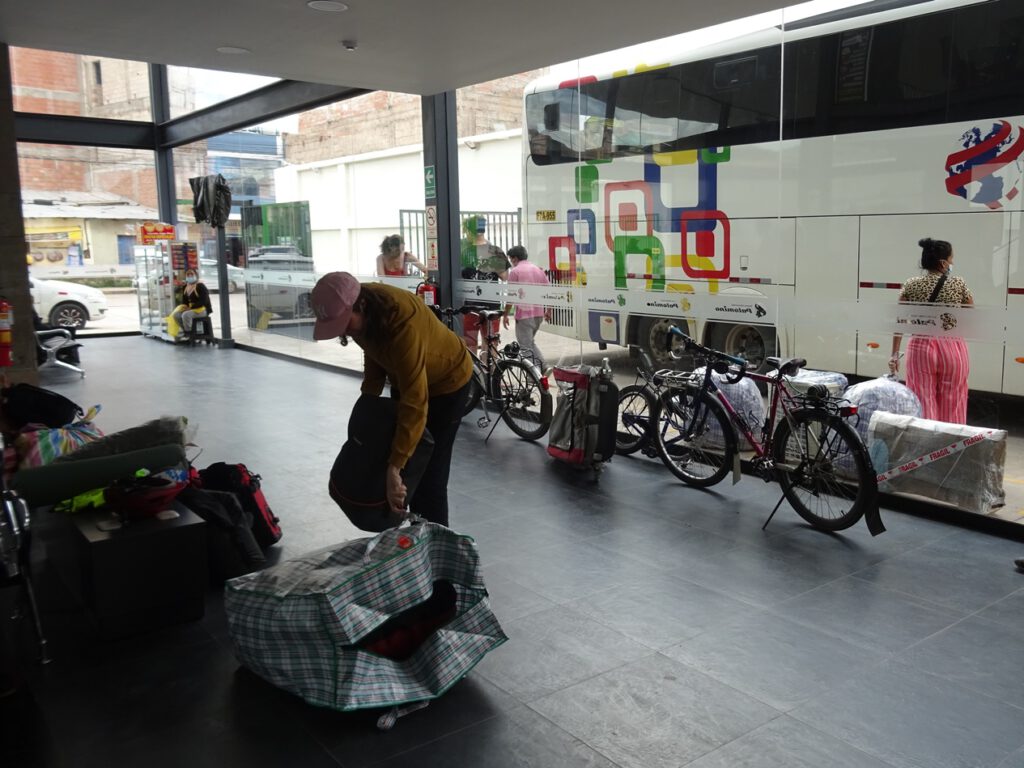
There is plenty to do in Cusco. Apart from sorting the tickets for Macchu Picchu, more on that later, the city itself has a lot of attractions: markets, old churches, squares, narrow alleys,… For that reason, we knew we would stay for a few days so we rented an apartment, like we did in Lima, to be able to relax and cook.
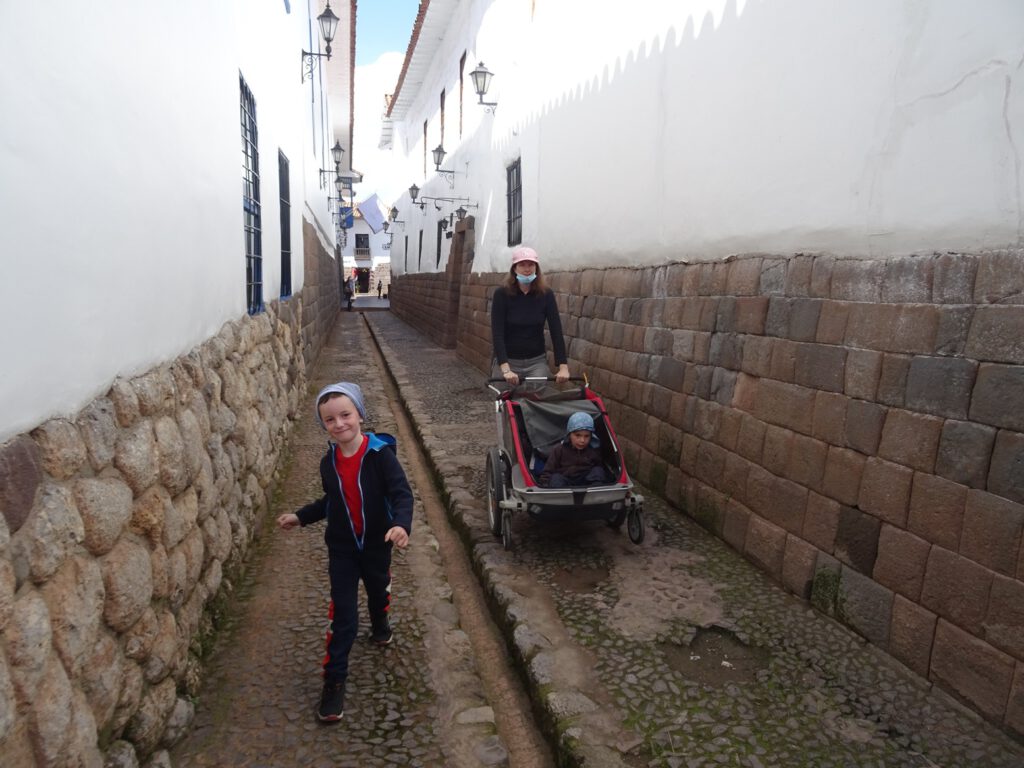
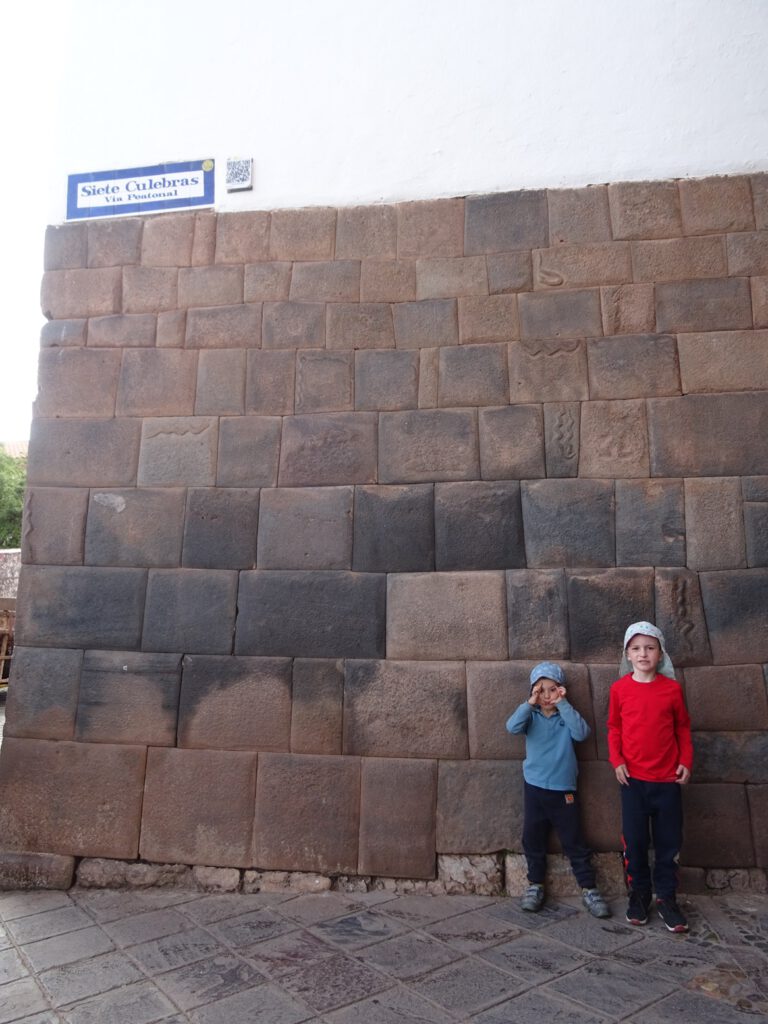
On our first full day, we went to the Plaza de Armas, and we started to see more foreigners than in all the time we had been in Perú. Most, like us, use Cusco as the jumping point for Macchu Picchu, and you need to spend at least a couple of days there to sort all the logistics.
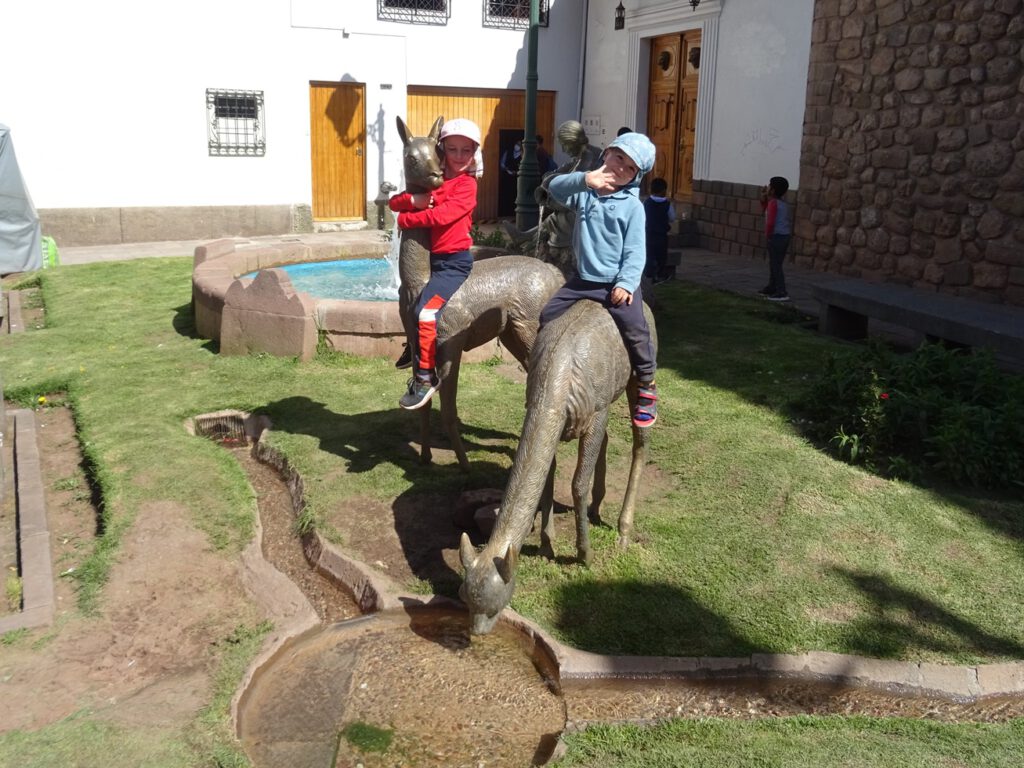
On the way there we were approached by one of the many sellers for a double decker bus tour. The price was good, kids were free and we were given seats at the front, a win-win for us. We could get to see all the main sights of the city from the comfort of the bus, which is great when going with kids.
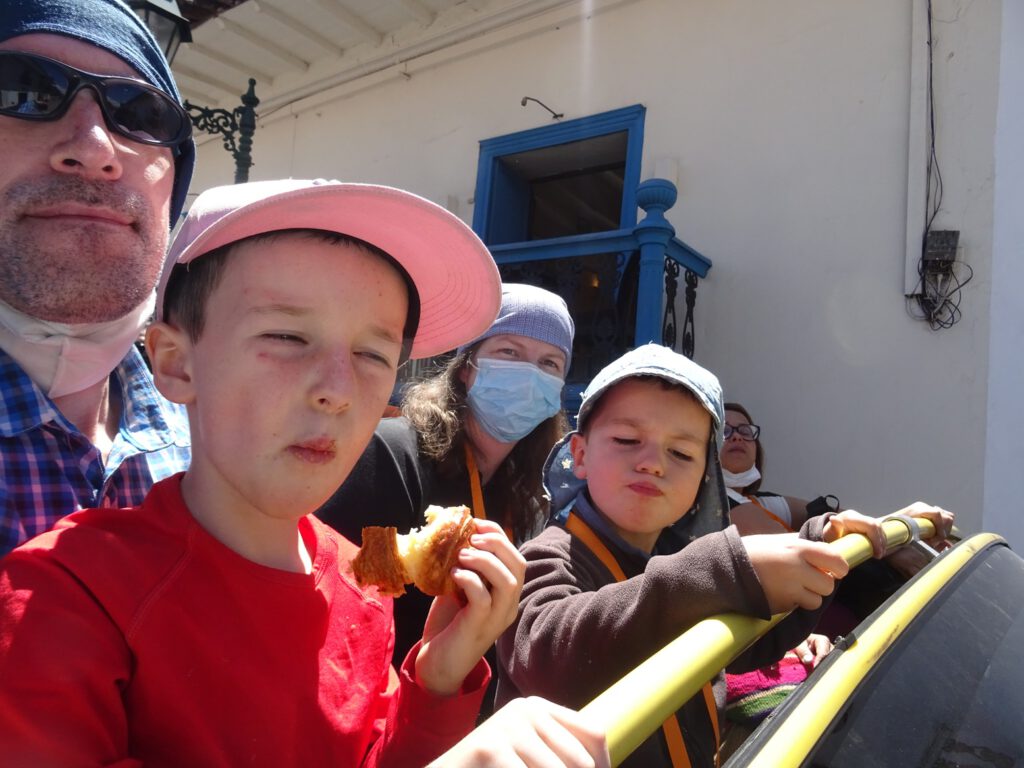
The only problem was that the speakers were either broken or low quality, so we could barely hear the explanations from the tour guide.
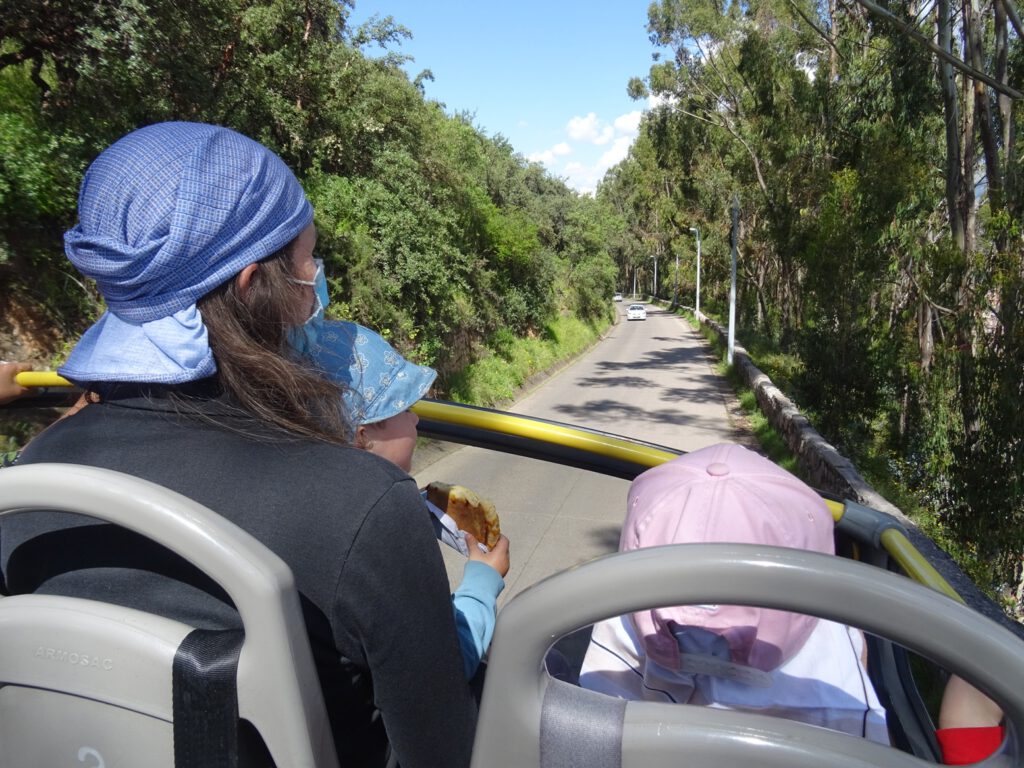
After the tour, we decided to get the tickets for Macchu Picchu, and that is when we realized our usual plan of actually not planning might not work this time. Apparently you need to book your tickets months in advance. And now that is Easter week, of course no tickets are available.
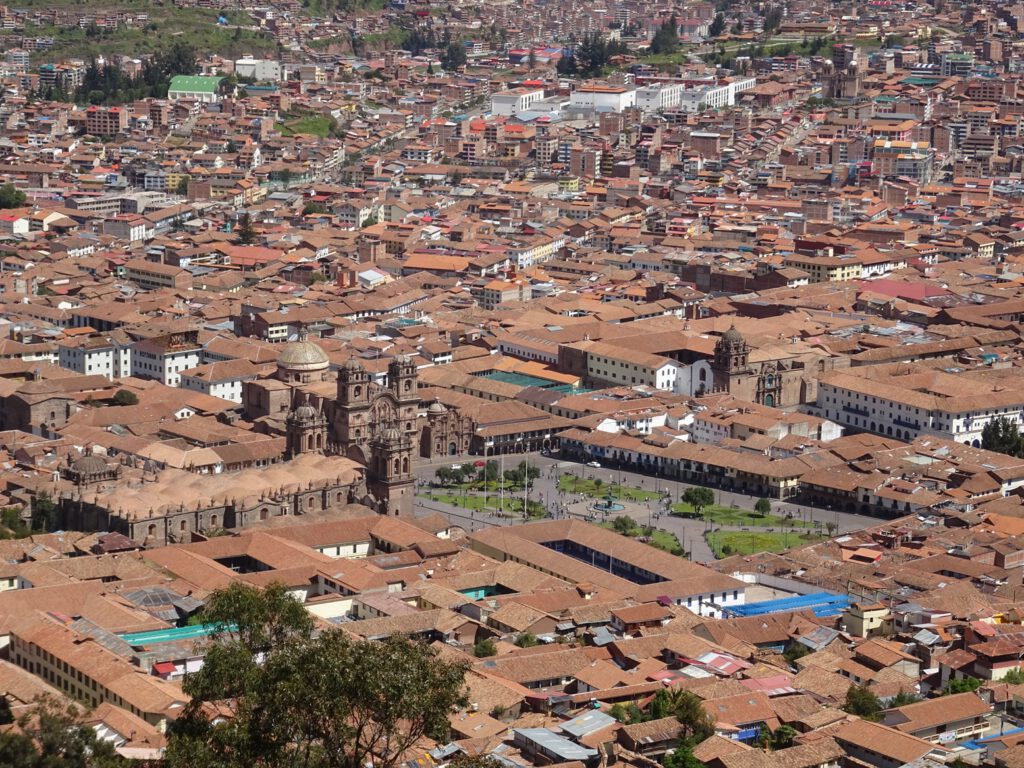
Luckily, we are still in a world coming out of a pandemic, and tourism is still well below usual levels, so we could get tickets for the Tuesday on the following week. Not a problem for us to spend a few more days around Cusco.
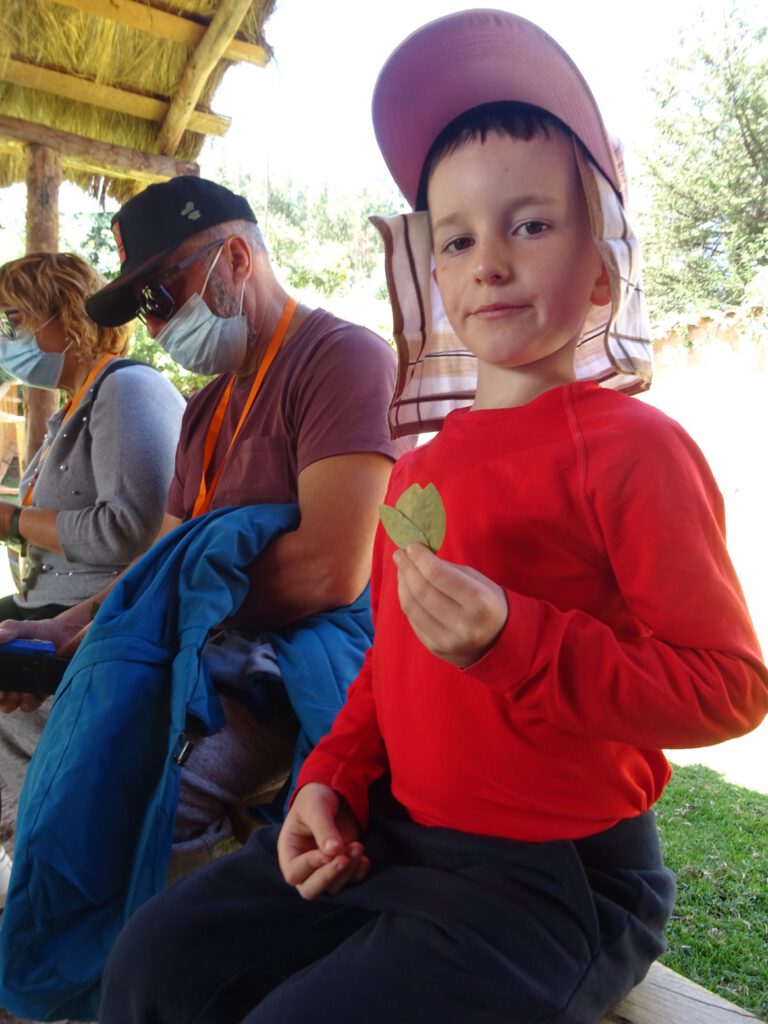
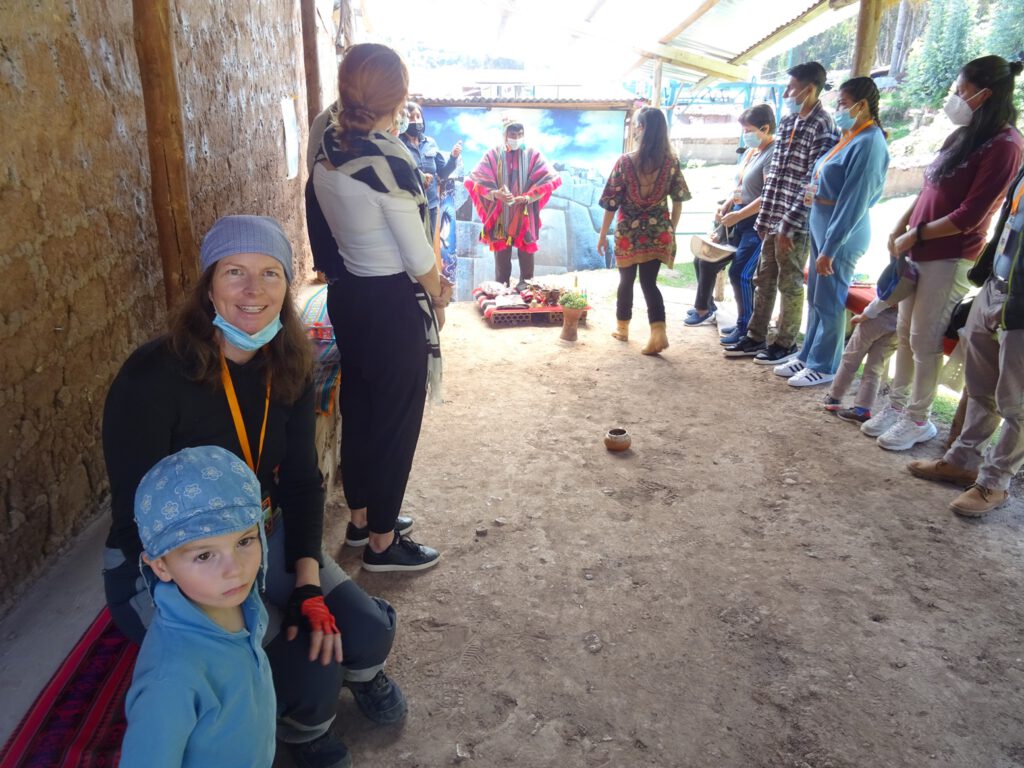
Once the tickets were sorted, we had to get there. You can either go cheap by approaching Aguas Calientes, the village at the bottom of Macchu Picchu, through trekking, but even though it’s not a very long one, we knew it would be too much for the kids. So we had to get the standard package of overpriced train tickets.
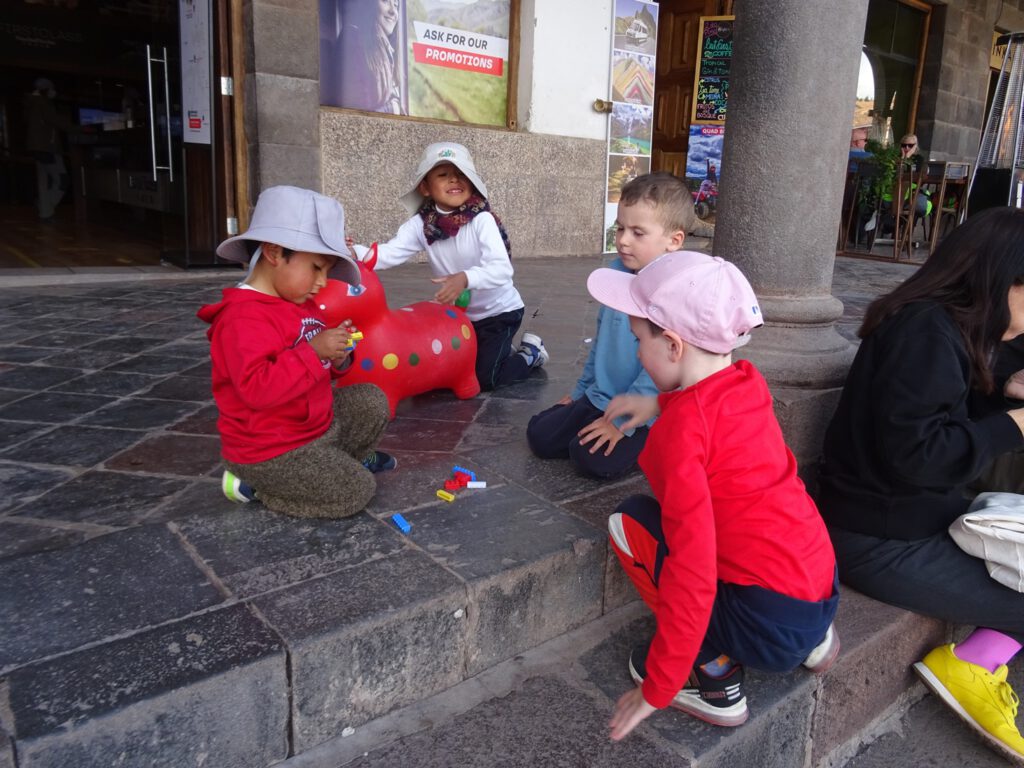
There are two companies, Peru Rail and Inca Rail. We checked both and picked the first one because prices and timetables were minimally better. Usually there’s a train leaving from Cusco itself to Ollantaytambo, where you can get another train all the way to Aguas Calientes. But we are told it’s too early in the season so the first train is still not operational so we need to do this bit by bus. We decided to find our own way to Ollantaytambo and book the bus for the return as we have a late train.
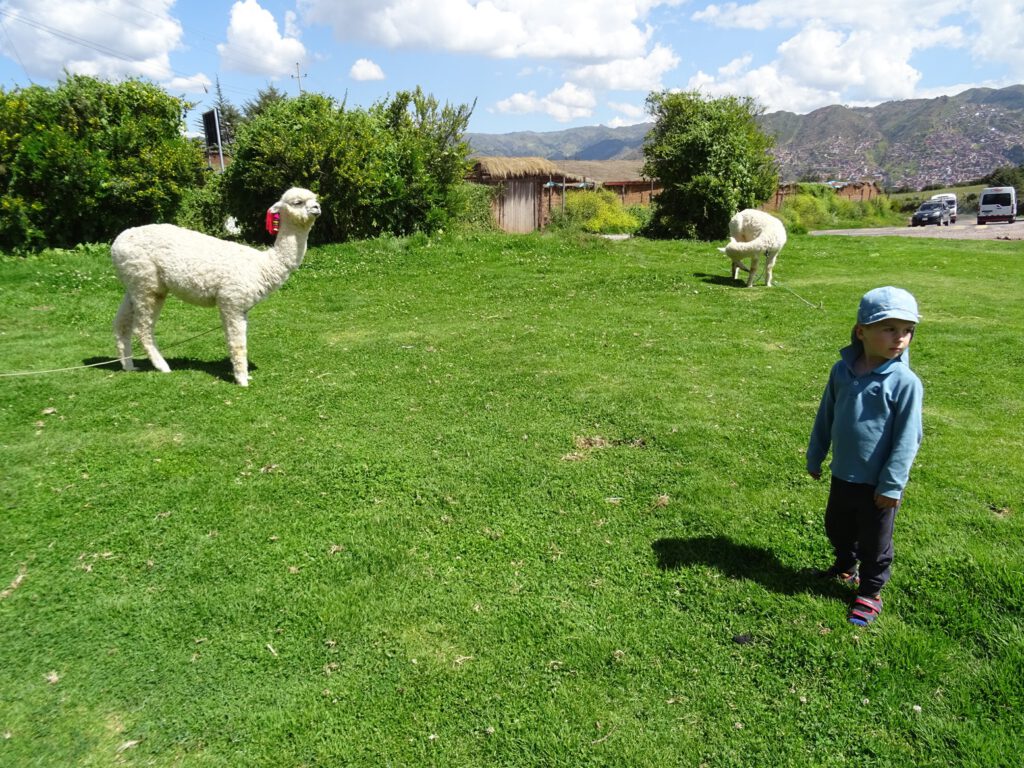
In the next day Susanne stays in the apartment to relax while I go with the kids to the local market, one of my favourite hobbies. To avoid tired and angry kids I decide to bring the bike trailer as stroller so the kids can seat there whenever they want. In the end they spent most of the day sitting, the lazy ones!
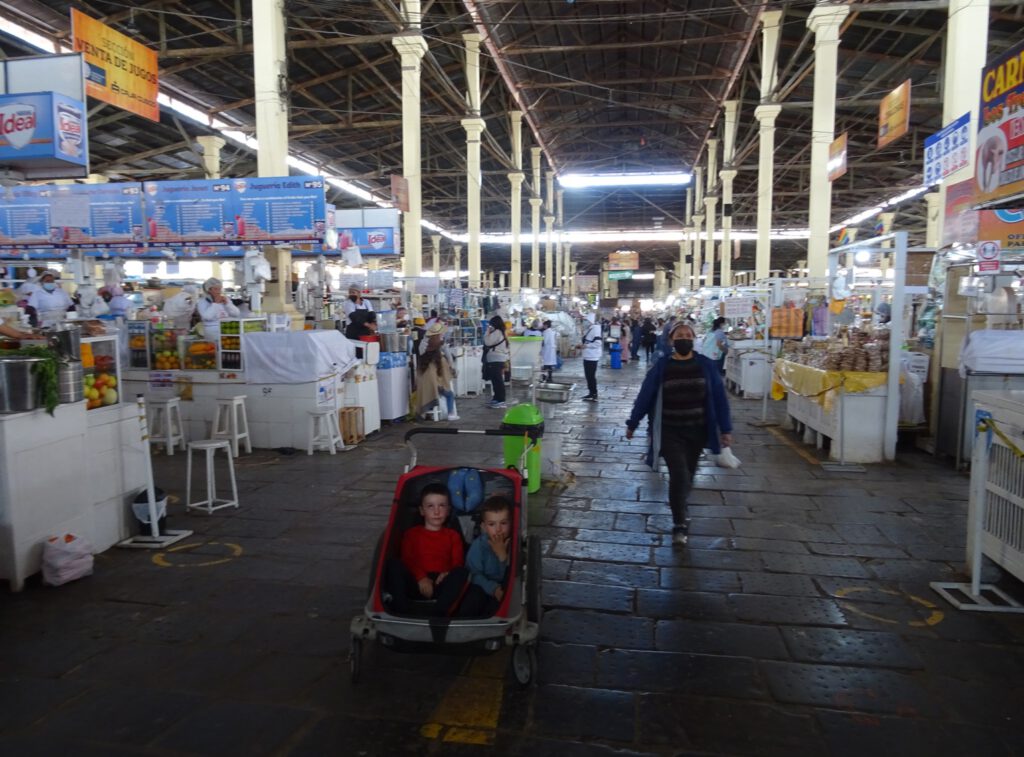
In the market we found everything, from vegetables to meat, to many restaurant stalls or souvenirs. Unfortunately, or rather fortunately, as cyclists we can’t afford to buy presents as we would have to carry them for thousands of kilometers in our bikes.
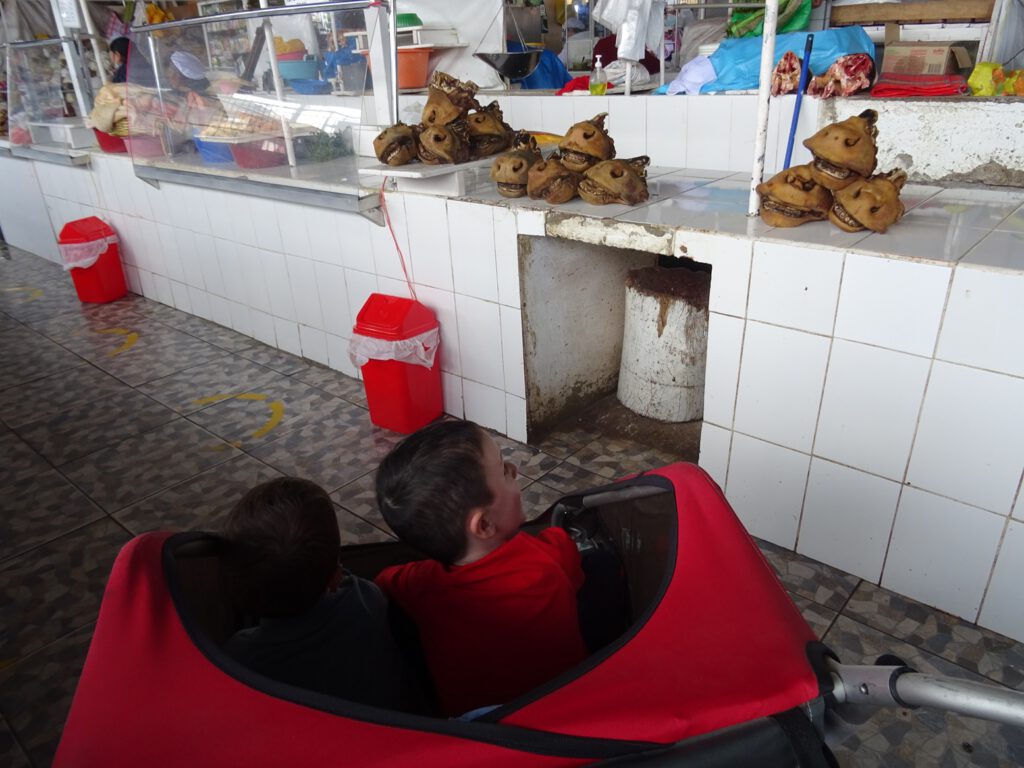
So in the end the kids enjoyed some freshly made juices and I bought some delicious cheese, “swiss style” they call it, one of the few ones a bit more mature and likely to last longer without a fridge.
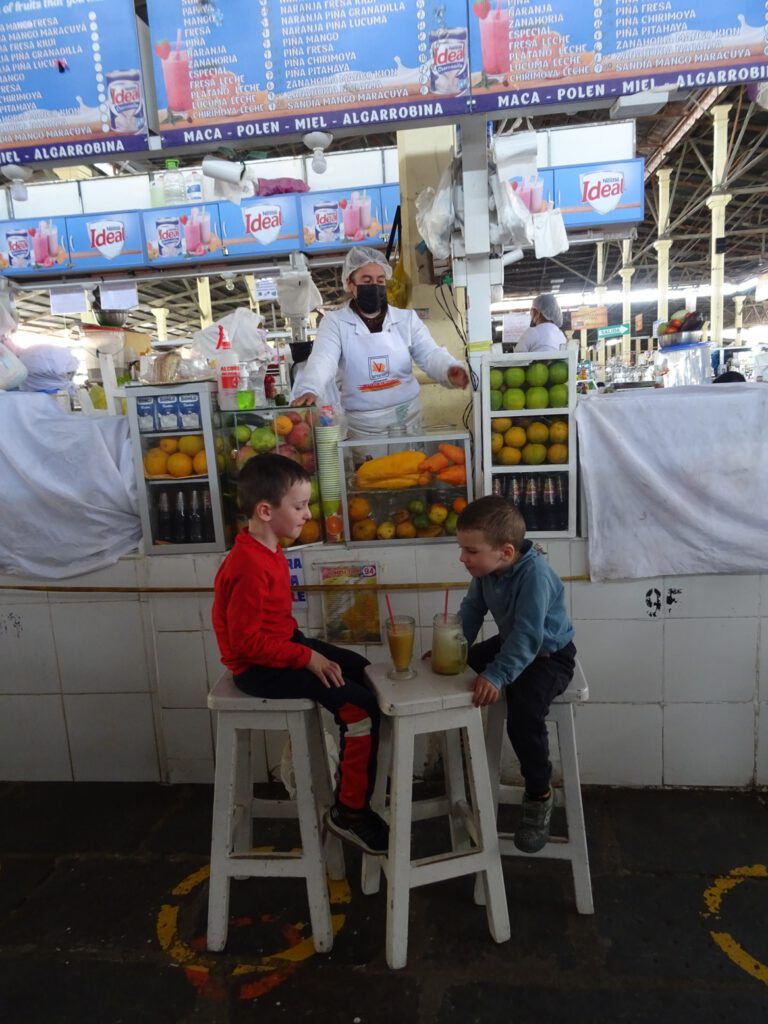
The following day, after buying the tourist card for 130 soles (about 30 EUR), we decided to have a marathon day and visit all the important Inca sites in the surrounding area of Cusco.
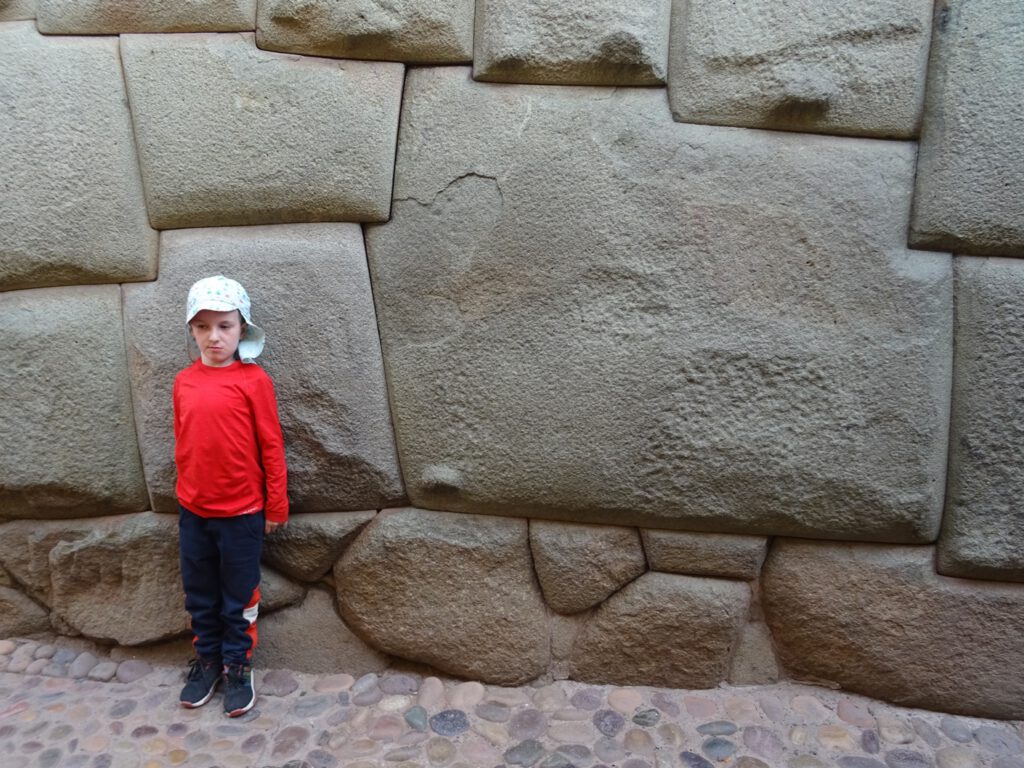
We first take a colectivo to the one farthest away, Tambomachay, and then walk our way slowly back to Cusco seeing all the monuments on the way.
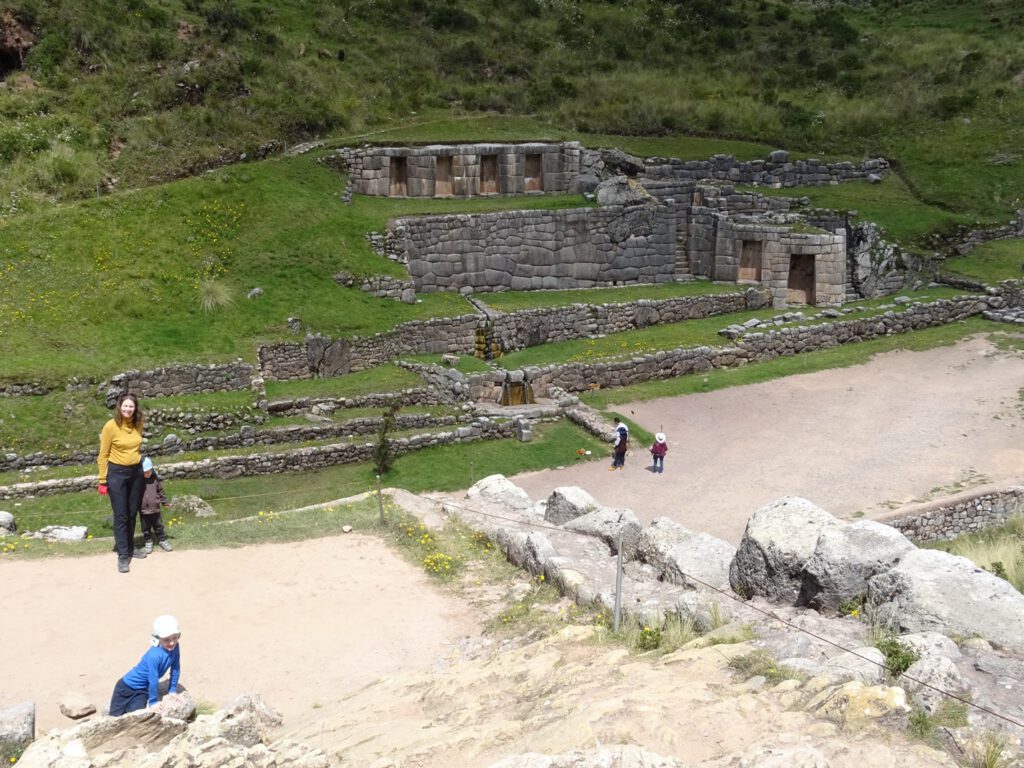
The collectivo is cheap, 50 cents, and it saves us a big climb out of Cusco. In less than 20 minutes we are in our destination. Tambomachay is claimed to be either a bathing area for the elite, due to the big number of fountains and canals, or a military outpost. Nevertheless, it was very pretty, a 10 minutes walk from the main road.
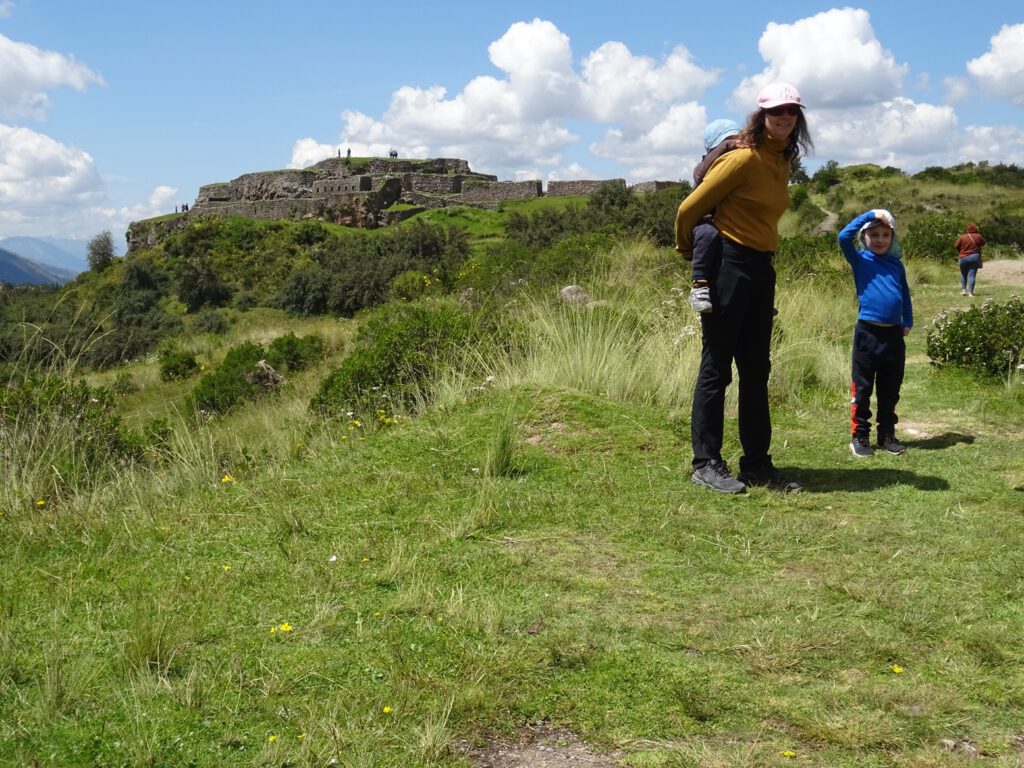
After that we walked to Puka Pukara, our next site. This one had a clear function, as it is a fortress to guard the entrance to Cusco from this side. The name means red fortress due to the colour of the stones.
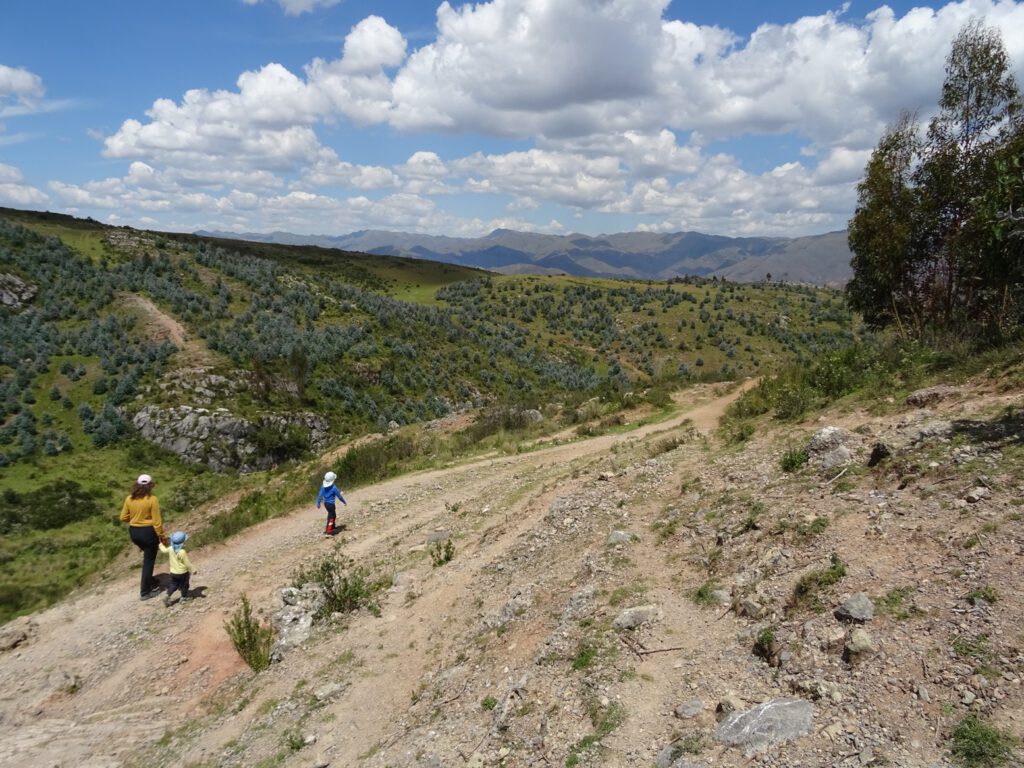
The next site, Q’enqo, is a bit further away. Luckily the app Maps.me shows a walking path away from the road and on a parallel valley, which turns to be a great choice. Quiet, pretty, and flat or slightly downhill, the kids walk through it without issues, entertained by the occasional horses or llamas on the way.
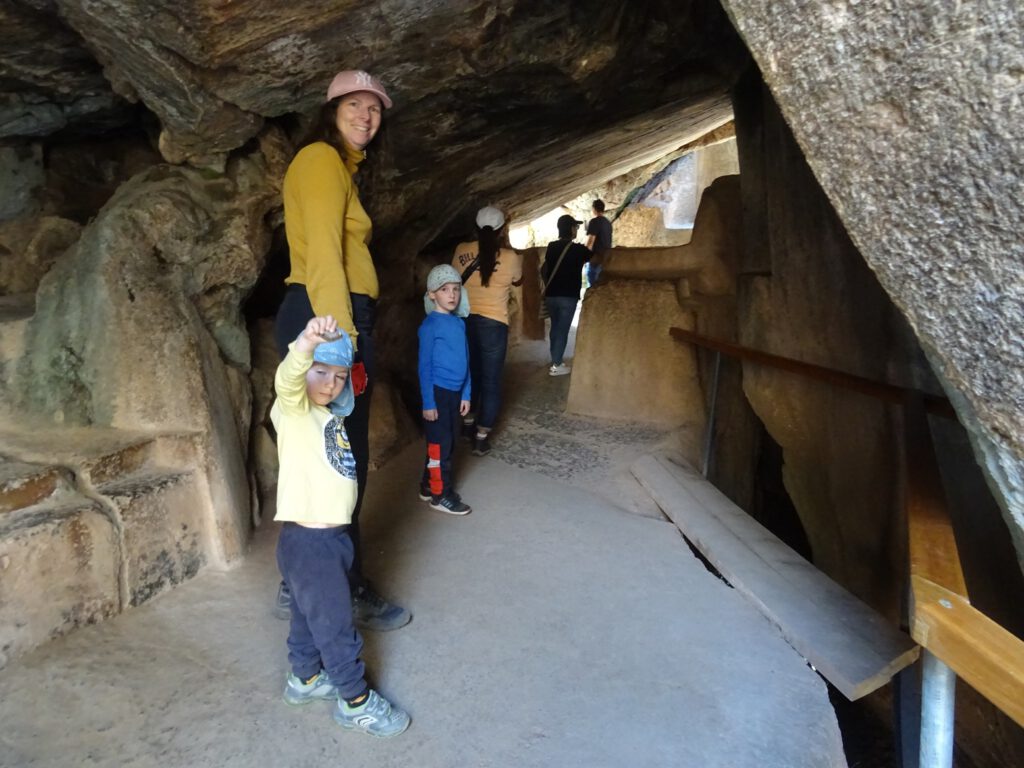
We make a couple of breaks, one for lunch and another to rest, and soon we are in Q’enqo. It is supposed to be a holy place for the Incas, with a massive stone in the middle with some sacred meaning and an altar inside a cavity, with some pretty walls surrounding it. It was the less spectacular so far.
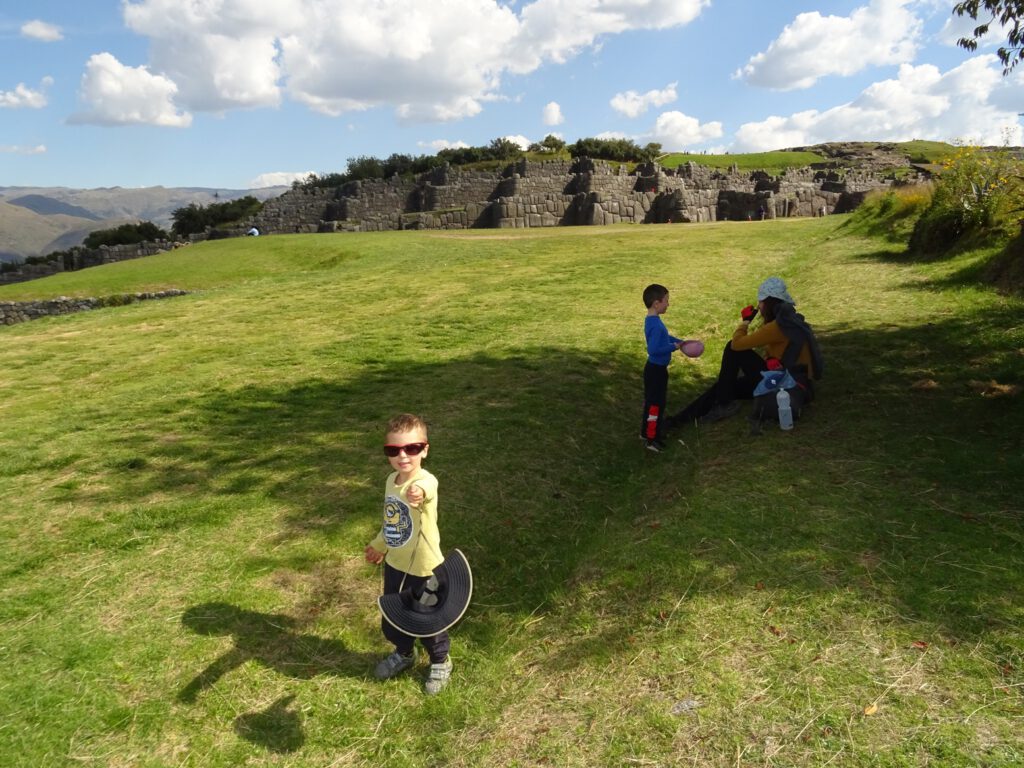
We are now getting very close to the city but still have to visit the last and most spectacular site, Saqsaywaman. This is some kind of citadel or fortress with the most spectacular walls we have ever seen. The stones themselves are massive, and as it is known from the Incas, they all fit perfectly with each other. The place was apparently much bigger but the Spanish used most of the smaller stones for their own buildings in Cusco.
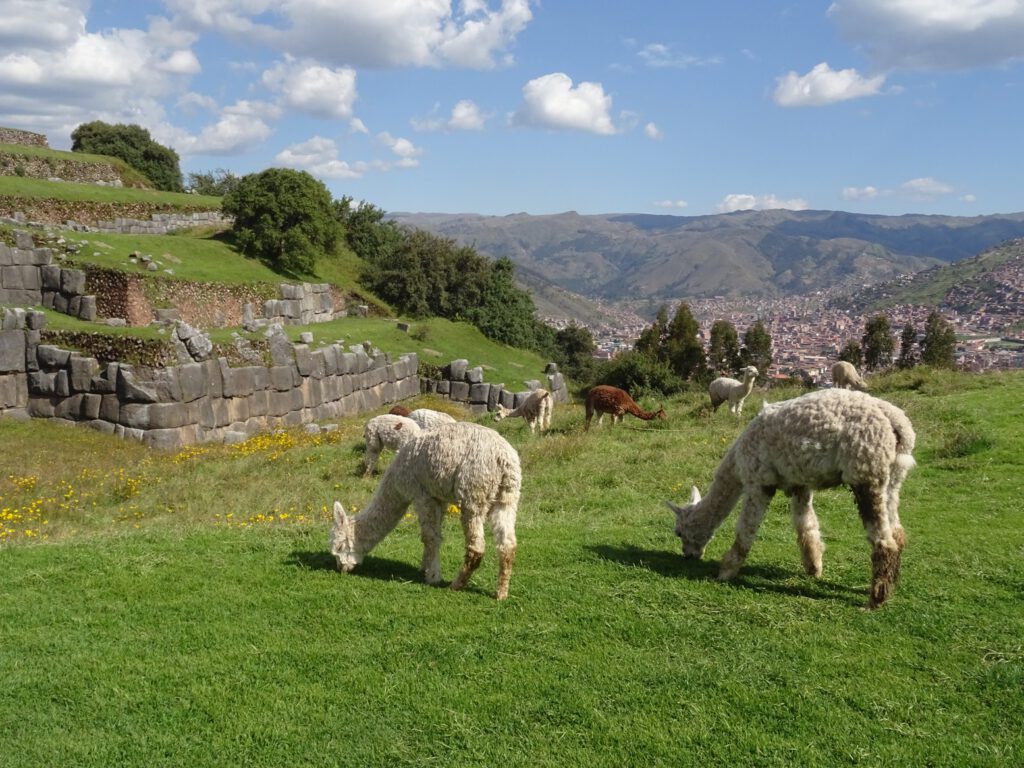
From there, a handy but steep stair leads back to the city. The kids had managed to walk the whole way, something many of my adult friends would not do!
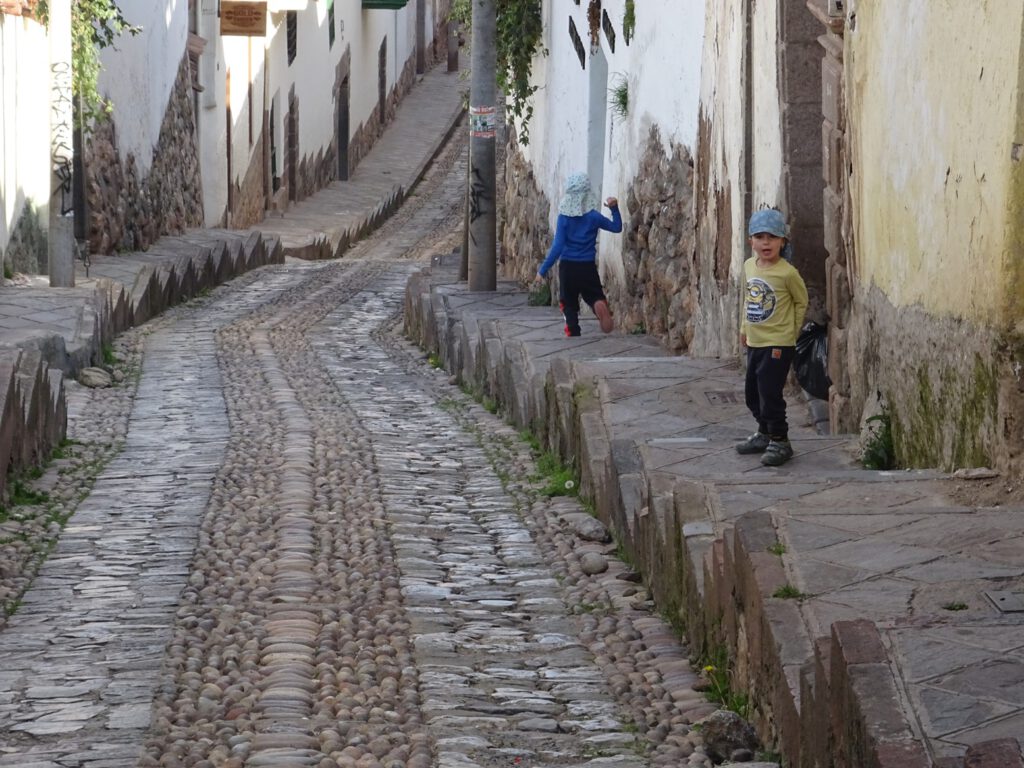
Close to Cusco, further East, lays the famous Sacred Valley, where the Incas had built many of their other main cities, and called Sacred because the soil was particularly fertile and the weather mild. Since we had to make time for our Macchu Picchu tickets, we decided to make another day trip, this time to the ruins of Pisaq, in the Sacred Valley.
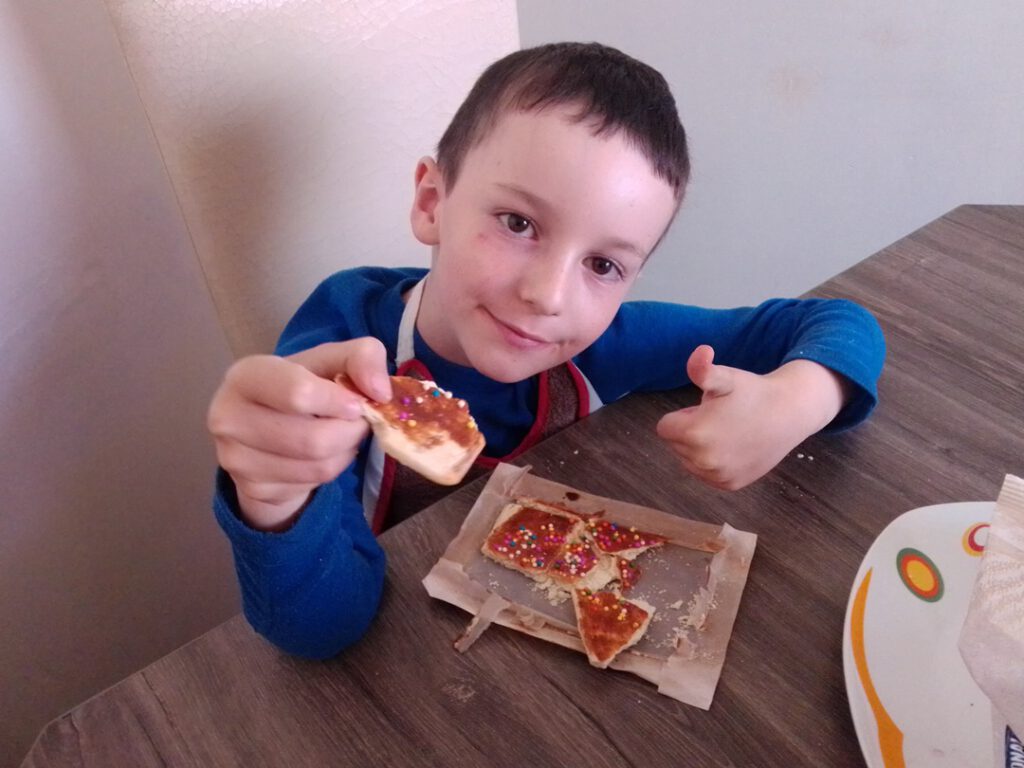
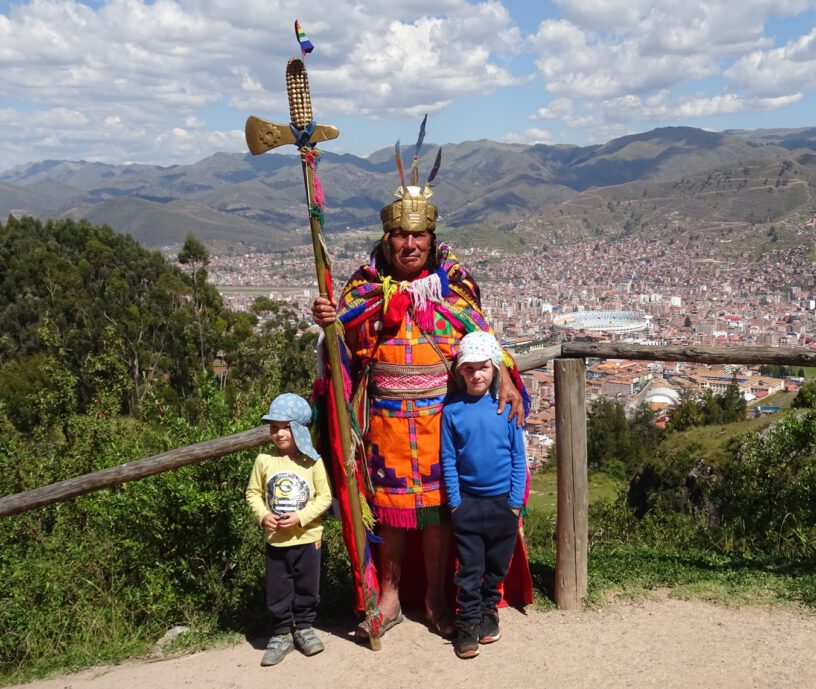
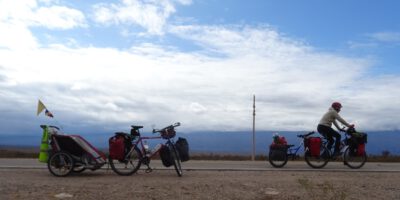
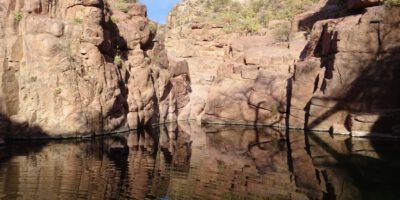
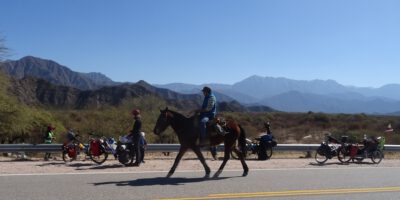
Katherine
What a great trip! Can’t wait to see the MachuPichu! El imperio Inca. Excellent paseo historico. Me encanta q lis niños atraen a los niños. Simon y Thomas siempre tienen con quien jugar. Que lindo paseo !!!
Maria
Me encanta la foto de los 3 incas jajaja
Noemi
Muy chulo chicos nos encanta veros tan bien, un abrazo para los cuatro